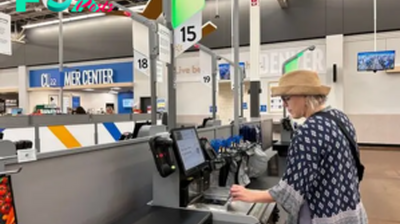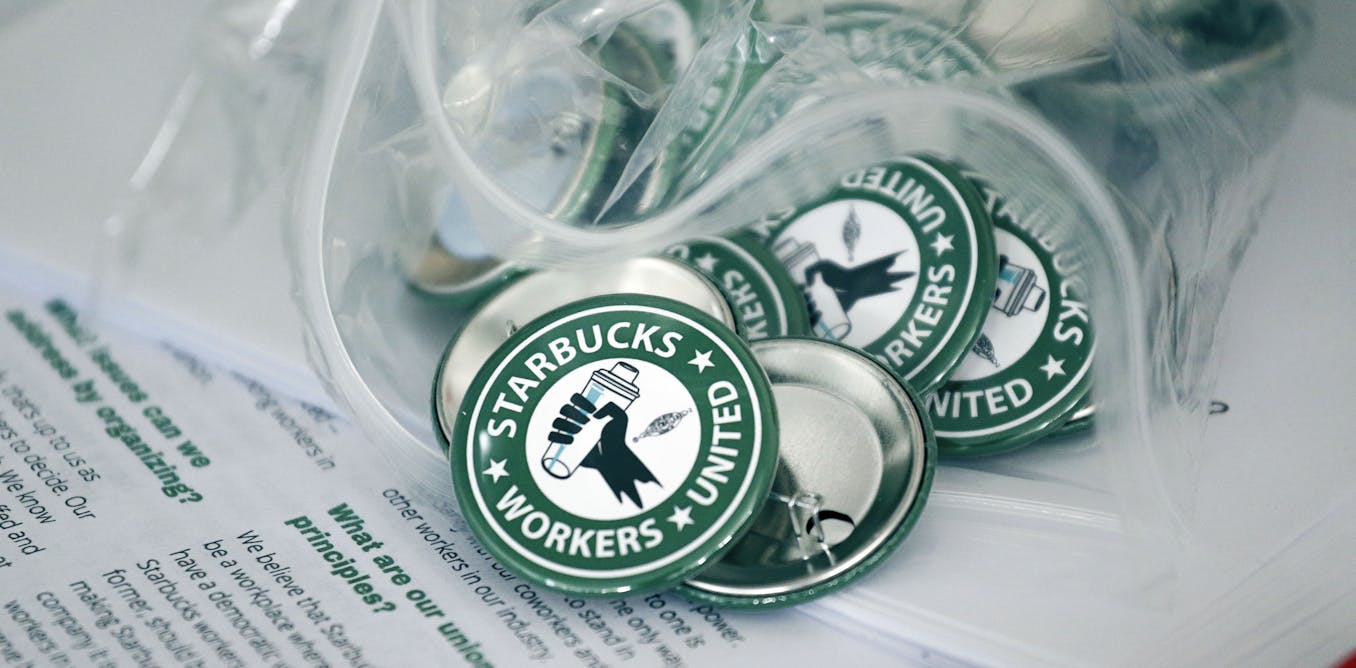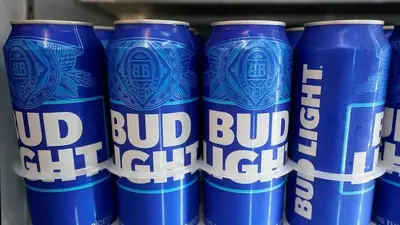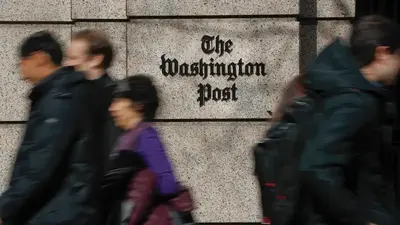Business
Quarterly results from Best Buy, Ralph Lauren and Dollar Tree show divergence in consumer spending
NEW YORK -- As iNFLation on necessities like groceries remains stubbornly high, the well-heeled consumer appears to still be spending, while lower-income shoppers continues to cut back their purchases, according to the latest batch of earnings reports.
Ralph Lauren Corp., which sells $300 sweaters and $500 handbags, reported a surprise increase in revenue in the latest fiscal quarter, while Dollar Tree cut its annual profit outlook on shoppers' increased focus on groceries and other necessities. Groceries carry a lower profit margin compared with general merchandise like clothing.
The dollar chain's profits were also hit by an increased level of so-called shrink — an industry term for inventory loss, including theft. Dollar Tree's shares slumped to the lowest level in a year.
Meanwhile, Best Buy turned in a first-quarter profit that beat Wall Street expectations, while the nation's largest consumer electronics chain continued to wrestle with weak consumer demand for gadgets. But the Minneapolis-based chain predicted on Thursday that the slump in consumer electronics will bottom out by year-end as customers who bought gadgets at the onset of the pandemic will start to update their devices.
Best Buy reaffirmed its cautious financial outlook, underscoring continued economic uncertainty.
“In this environment, customers are clearly feeling cautious and making tradeoff decisions as they continue to deal with high inflation,” said Best Buy CEO Corie Barry.
The bulk of major retailers have reported their quarterly earnings, with Nordstrom and Macy's among a few others slated to report in the next week or so. So far, the results show that inflation on food and other necessities continues to weigh on shoppers' budgets, forcing them to cut back on discretionary items like clothing and to trade down to cheaper items or less expensive stores. Higher interest rates are also making borrowing on credit cards or taking out a mortgage loan more expensive.
In fact, the average long-term U.S. mortgage rate rose this week to its highest level since mid March, driving up borrowing costs for prospective homebuyers facing a housing market that’s constrained by a dearth of homes for sale.
Earlier this month, Target reported another quarterly profit decline and issued a cautious sales and profit outlook for the current period. Walmart fared better as the low prices of the nation’s largest retailer continue to draw budget-conscious consumers, resulting in strong sales. It's also seeing wealthier shoppers trade down to its stores in search of cheaper groceries.
Walmart and Dollar Tree both noted that low-income shoppers are under more pressure now as the pandemic-era boost to the Supplemental Nutrition Assistance Program — known as SNAP— expired earlier this year, and income tax refunds are smaller this time than last year.
Home improvement retailers Home Depot and Lowe's both cut their sales outlook earlier this month on slowing demand for home projects as the housing market weakens.
But Best Buy's Barry struck an optimistic tone — at least for gadgets. The CEO believes that the consumer electronics slump will bottom out by the end of the year. The pandemic pushed many people to add more connected devices into their homes, and those devices will need to be updated or replaced. Barry noted that customers are already starting to come in at a higher rate to replenish some of the gadgets.
Best Buy said that it earned $244 million, or $1.11 per share, for the three-month period ended April 30. That compares with $341 million, or $1.49 per share, in the year-ago period. Analysts were expecting $1.10 per share.
Revenue slipped 11% to $9.47 billion from $10.65 billion in the year-ago period. That was below analysts expectation for $9.53 billion.
Comparable sales — a key metric of a retailer's health — were down 10.1% in the quarter.
Best Buy said it expects earnings per share in the range of $5.70 to $6.50 for the year. Analysts expect $6.17 per share, according to FactSet.
It projects revenue of $43.8 billion to $45.2 billion for the year. Analysts expect $44.5 billion, according to FactSet. It also anticipates comparable sales to fall 3% to 6% for the year.
Ralph Lauren reported net income of $32.3 million, or 48 cents per share, for its fiscal fourth quarter ended April 1. That compares with $24.4 million, or 34 cents per share, in the year-ago period. Adjusted results were 90 cents per share. Sales rose to $1.54 billion from the year-ago's $1.52 billion.
Analysts were expecting 60 cents per share on revenue of $1.47 billion, according to FactSet.
Dollar Tree, which owns Family Dollar, posted profit of $299 million, or $1.35 per share, for the fiscal first quarter ended April 29. That compares with $536.4 million, or $2.37 per share, in the year-ago period.
Adjusted results were $1.47 per share, below the $1.52 average estimate.
Sales at Dollar Tree increased to $7.32 billion from $6.9 billion. That was above FactSet's estimate of $7.28 billion.
Dollar Tree, based in Chesapeake, Virginia, cut its annual profit outlook to a range of $5.73 to $6.13 per share. That's down from its previous $6.30 to $6.80 per-share range. Analysts were expecting $6.60 per share, according to FactSet.
Shares of Dollar Tree fell nearly 10%, or $14.98 to $140.37 in mid-afternoon trading, while Ralph Lauren's share rose nearly 6%, or $6.42 to $114.64. Best Buy's shares rose more than 2%, or $1.56, to $70.71.
____
Follow Anne D’Innocenzio: //twitter.com/ADInnocenzio
-

 Business2h ago
Business2h agoPassover notes from Rome – Chef Walter Potenza
-

 Business8h ago
Business8h agoWalmart Rolls Out Major Changes For In-Person Customers. See What Stores Are Impacted
-

 Business10h ago
Business10h agoSupreme Court appears open to Starbucks’ claims in labor-organizing case
-

 Business10h ago
Business10h agoProtium marks one-year milestone in inexperienced hydrogen manufacturing
-

 Business19h ago
Business19h agoThe QI Group Story: From Humble Beginnings to Global Reach
-

 Business22h ago
Business22h agoRhode Island Weather for April 23, 2024 – John Donnelly
-

 Business1d ago
Business1d agoGoldtree Reserve’s Innovative Gold Investment Program Reaches New Milestones
-

 Business1d ago
Business1d agoTosyalı Secures “Rhine Water Pipeline (RWTL)” Project Contract in Germany



























